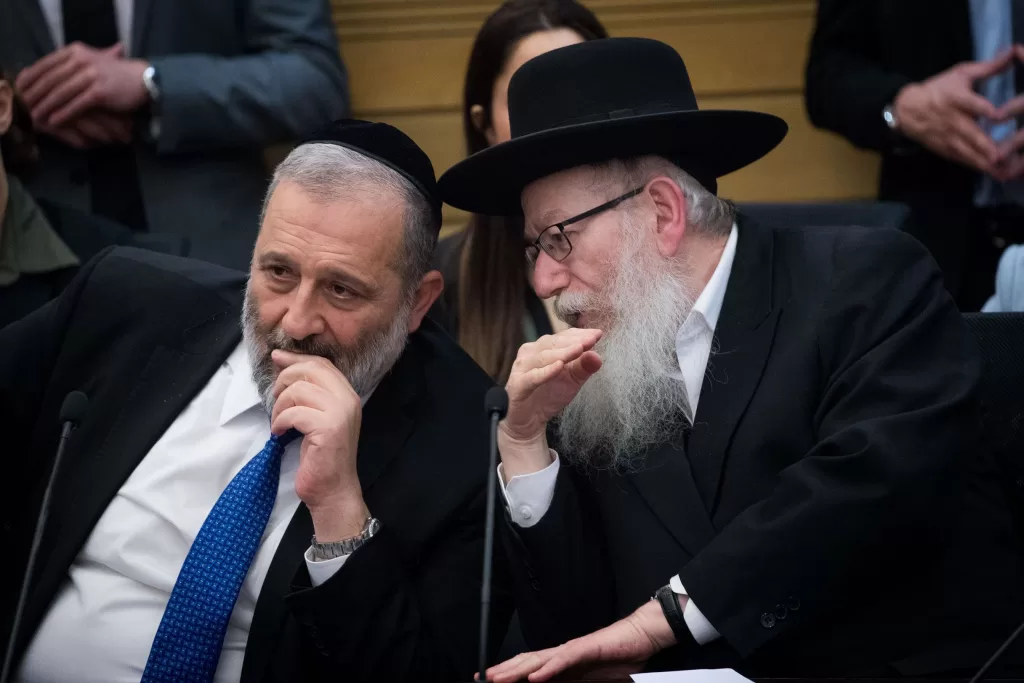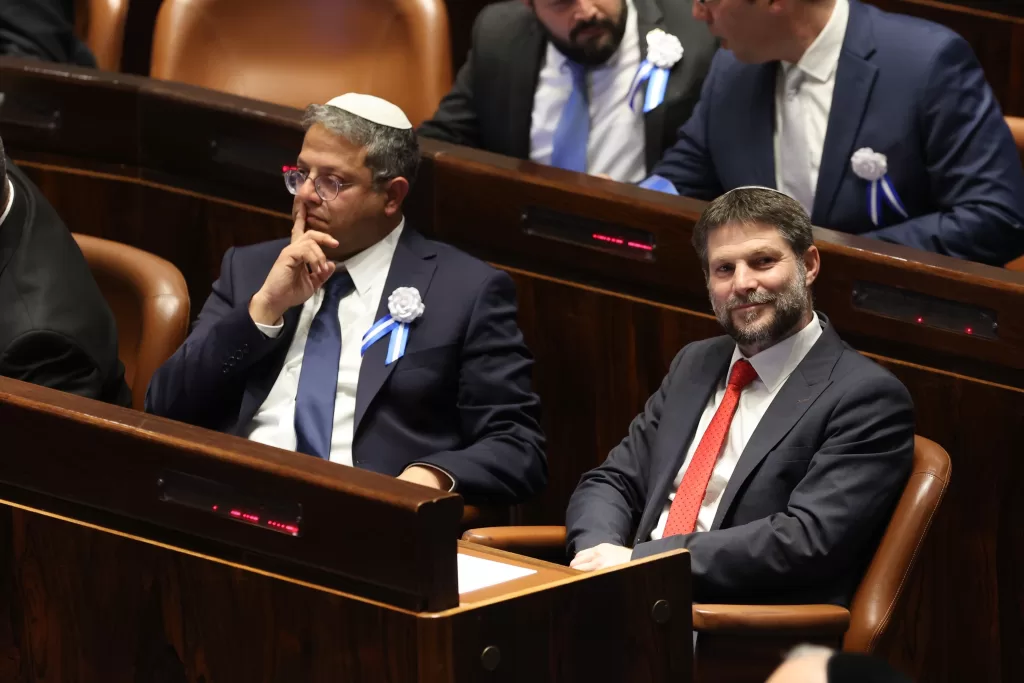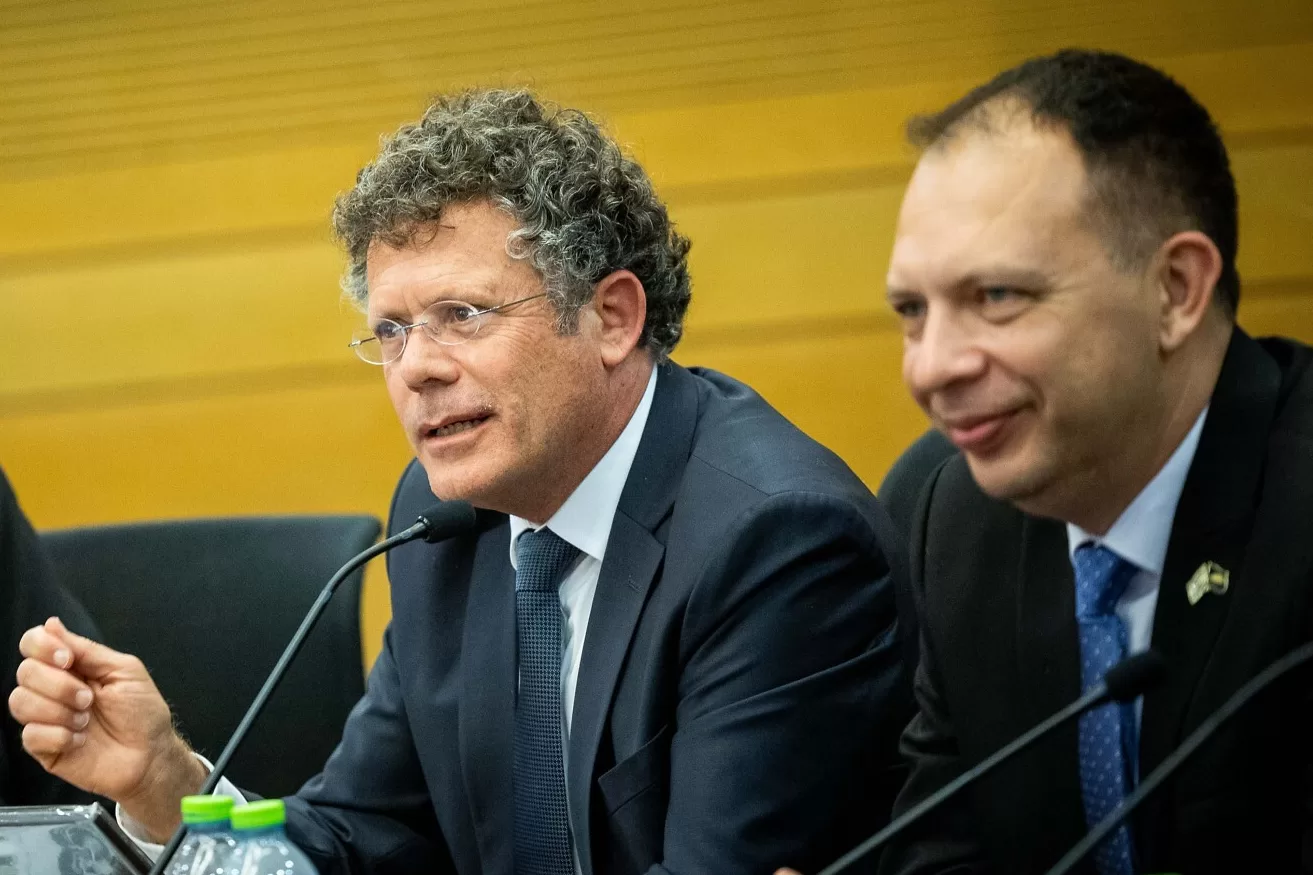“I don’t need you to agree with me; I need you to care about me”. Rabbi Jonathan Sacks.
Israel is going through unprecedented upheaval where large numbers are protesting the government’s legislative agenda related to the judiciary. Israeli politics is notoriously fractious, and the political system only allows a coalition government. Both Israelis and outsiders were surprised at the unprecedented protests where hundreds of thousands are protesting weekly for over 30 weeks. This protest is broad based including organizations representing teachers, doctors, lawyers, academics, business leaders, labor unions and veterans.
In the winter of 2022 Israel formed the most right-wing government of its history. The coalition headed by Prime Minister Benjamin ‘Bibi’ Netanyahu won 64 seats in the 120-seat Knesset and its rivals secured 56. The current crisis is viewed as opposition to judicial overhaul by the government, but it has deeper roots. This is merely a symptom that has come up in the open due to religious, ideological, demographic, social, and economic changes of the last three decades.
Bibi was able to get the prime minister slot for the sixth time by bringing right wing parties in coalition with his Likud (Consolidation) party. The coalition partners include ultra-Orthodox Sephardic Shas and Ashkenazi United Torah Judaism (UTJ) as well as Otzma Yehudit (Jewish Power), HaZionut HaDatit (Religious Zionist Party) & Noam. This coalition is the outcome of the struggle for the soul of Israel in the last three decades. The country is neatly divided between these ultra-conservative religious forces and the rest of the country that is also diverse.
Israel is a homeland for Jews and religion is in the very DNA of this modern experiment of establishment of a modern nation state based on religious identity (the only other example in the world is Pakistan that was carved out of India based on this principle). Jews make up eighty percent of the Israel population, but they are diverse in their ideology, adherence to religious practices, ethnicity, and world view. It is simplistic but in general Israeli Jews identify themselves with one of the four major subgroups: Hiloni (secular) 44%, Masorti (traditional) 24%, Dati (religious) 14% and Haredi (ultra-orthodox) 14%.

The founders of Israel were Zionists who established, constructed building blocks of a modern state, and stoutly defended it against overwhelming odds from hostile neighbors on all sides. They were proud Jews but did not envision religion dictating the running of the state affairs. They ruled for the first three decades with no major opposition.
In the last three decades, changing dynamics of security threats to Israel, collapse of two state solution, rise in the numbers and assertion of religious parties and social frictions have shaped political views of the Israelis. The ideological shift can be gauged from the fact that the political positions of some lawmakers of the anti-Bibi bloc are close to Likud, and they only oppose Bibi as an individual. There are about a dozen such lawmakers that makes the actual strength of right wing (religious & secular) lawmakers of current Knesset of about 75. On the other hand, the Labor Party which dominated politics during Israel’s first thirty years has only four seats and Meretz (Vigor) – the only Zionist party that is explicitly anti-occupation has no representation in present Knesset as it was unable to cross the electoral threshold.
The Israeli electorate is divided in the middle that resulted in five elections in four years (2019-22). There has been a steady increase in religiosity and a growing rightward shift in Israeli society over the last three decades. The principal driver of this trend is demographic shift and religio-ethno-nationalist sentiments mainly attracting Israelis from religious and lower socio-economic backgrounds.
Religious parties of the coalition have their own specific interests concerning the communities they represent. The Haredi parties are notably focused more on issues of religion and state, exemption from military service and ensuring subsidies for their constituency. Religious Zionist Party headed by Bezalel Smotrich, and Jewish Power headed by Itamar Ben Gvir represent settlers and focus on expansion of settlements in occupied territories. Likud wants to constrain the powers of the attorney general, and change the criminal code, to get Bibi off the hook from corruption charges. Shas leader Aryeh Deri was forced out of the cabinet by a court decision in view of his previous convictions. He hopes to come back to his important cabinet portfolio by limiting the role of the judiciary. All parties of the current coalition view the judiciary as a hindering block to achieve their goals.

Israel always had a right side of the power equation but there is difference between the old and new right. The old political right opposed the Oslo Peace Accord and wanted to keep the occupied territories. They were shocked when their champion Ariel Sharon withdrew twenty-one Israeli settlements from Gaza unilaterally. The old religious right wanted to preserve their separatism within Israeli society and wanted the state to give room in case their responsibility as a citizen clashed with their view of Jewish tradition.
The newly energized right moved further right with some entering the racist and xenophobic tent. The new thrust was to annex the West Bank by extending Israeli law and de jure sovereignty. The next step was to raise popular anger against any efforts that could come in the way of weakening the settlement movement and eventual annexation. In this way, the new right came into conflict with judiciary and security establishment that were portrayed as old secular guards who were resisting the popular will of the people expressed in elections.
The religious right started to assert their religious world view on others by insisting monopoly over the definition of who is a Jew by controlling laws of conversion. Ultra-orthodox strengthened the right-wing lines as they wanted to protect their community by shielding it from Israeli military draft and preserve their separate identity. They created their own communal neighborhoods to avoid contamination of decadent modern world that threatens Jewish tradition. They run their own schools focusing on religious studies at the cost of science and math. They were traditionally concentrated in Bnei Brak in Tel Aviv and Mea Sharim in Jerusalem. However, population growth and rising housing costs forced them to create new enclaves and now one third of the populations of Ashdod, Tiberias and Arad is ultra-orthodox, causing friction in these cities. The new right is portraying its struggle as an effort to reclaim the country for the people from the hands of unelected elite represented by the judiciary, security establishment and bureaucrats.
Contrary to charges from the right, the High Court has rarely challenged the government’s authority. The bone of contention is ‘reasonableness doctrine’ where the high court has assumed the power to determine whether a government official has acted reasonably in a certain situation.
It has stepped in in some cases that enraged the right. The court has weighed in on exemption of Haredi men from military service viewing it through the lens of equality. In 2017, Knesset passed a law that legalized Israeli settlements on private Palestinian land. In 2020, the court struck it down. The High Court has prevented convicted politicians from serving as cabinet ministers. Those supporting the status quo base their argument on the fact that in the absence of a written constitution and a single chamber of parliament that acts both as legislative and executive, it is only the court that can act as a check on the power of Knesset.
The current political crisis has deeply polarized Israeli society with impact on internal cohesion, security, economic and Jewish diaspora. Over 10’000 reservists of Israeli Defense Forces (IDF) indicated that if judicial reforms bill pass, they will not report for their reserve duty. Over thousand reservists of Israeli Air Force including 200 reserve pilots and hundreds of intelligence reserve officers including 50 officers of the elite 8200 Cyber Unit announced that they will not report for reserve duty. It is not clear how many will act on the threat.

Herzi Halevi – Chief of General Staff of the Israel Defense Forces
This was a rude awakening for the security establishment. Israel’s Institute for National Security Studies (INSS) manned by retired senior officers of armed forces and intelligence agencies and former national security advisors issued a warning about impact on the cohesion of IDF. IDF leadership, Mossad and Shin Bet has sent repeated warnings to the government and in security cabinet meeting in July 2023, Director of Military Intelligence and IDF operations commander warned about decreased combat capability in short and medium term. The mood of Bibi can be judged from the fact that IDF Chief of Staff Lieutenant General Herzi Halevi tried for four days for a meeting with Bibi and finally got the meeting but only after the law was passed.
The IDF leadership is in a very difficult position of balancing the act of conveying the concerns of its members to political leadership while at the same time discouraging the members to act on their threat of not showing up for reserve duty. The next delicate task will be deciding on how to punish the refuseniks.
The Capital is very sensitive to uncertainty and current crisis has an impact on Israeli economy. One estimate puts the loss to Israeli economy at 81 billion (15% of country’s GDP). Moody’s, Morgan Stanley, and S&P 500 rang the alarm bells on Israeli economy with the predictable result of downgrade of credit rating thus increasing borrowing cost and flight of capital. There is forecast of sharp drop in economic growth from 6.5% in 2022 to 1.5% in 2023. Several Israeli business leaders including executives of high-tech companies that is the main driver of the economy have repeatedly warned the government. According to non-profit Start Up Central, seventy percent of local Israeli startups have taken steps towards relocation.
It is important to look at recent experiences of other countries where tinkering with judicial independence had severe negative impact on economy. Hungary in 2009, Turkey in 2015 and Poland in 2016 curtailed judicial review that resulted in downgrade of credit rating and drop in foreign investment.
Majority of Jewish diaspora, especially in the United States belongs to reform and conservative branches of Judaism but their numbers in Israel are very small. They tend to be centrist and leftists and majority vote for Democratic Party. American Jewish organizations are unanimous about security of Israel and support Israel through education, advocacy, and philanthropic contributions.
They tend to avoid public comments on domestic Israeli politics that at times can be acrimonious. Israel could always count on its diaspora for unconditional support. This has changed and rise of ultra-orthodox with attempts to impose religious views in public spheres in addition to refusal of Israeli Rabbinic authority to recognise reform conversions has raised concerns of diaspora.
In an unprecedented move, sixteen Jewish American members of Congress wrote a letter to the Israeli Prime Minister, the President, and the leader of opposition suggesting halting judicial reform process and work on consensus. Thirty leaders of all major American Jewish organizations rushed to Israel for a one-day emergency visit to meet all Israeli stake holders to directly communicate their concerns. International conservative Masorti movement and even World Mizrachi movement publicly called for negotiations about reforms. Several dozen major American Jewish donors and philanthropic organizations also publicly advised the Israeli government to work on consensus.

Immediately after approval of judicial reform bill in July 2023, it was challenged in the High Court that set the date of 12 September 2023 for the hearing. There is a clear and present danger of a constitutional crisis in the country. If the court overturns the bill, it will result in the backlash from the government and pouring of right on the streets. This could paralyze state institutions as heads of departments will be caught in the dilemma (this was the reason that IDF Chief and heads of Mossad and Shin Bet held their general staff meetings). If the government withdraws the bill, it will collapse. If the court decides not to strike down the law, then government will be energized and the next item on the agenda is taking control of Judicial Selection Committee. This will politicize the process of selection of judges that has plagued the American higher judiciary.
The Government would like to delay the hearing at least for several weeks to work its own strategy. It is counting on the fact that two justices including the President of the court are retiring in October (Justice Anat Baron on 12 October and President Esther Hayut on 16 October). Justice Yitzhak Amit will become President, but the justice minister can delay convening the meeting of Judicial Selection Committee thus weakening the court. To complicate the matters further, the Attorney General that normally represents the government has declined to do this job that will now require outside representation.
In 2015, President Reuven Rivlin described that Israeli society was now divided on the age-old dilemma of religion and state and consists of ‘four tribes’: secular, nationalist-religious, ultra-orthodox and Arabs. Leaving Arabs aside intra-Jewish social contract has now come under strain where opposing views are having impact on social integration.
The current fight about judicial reform is just a symptom of a bigger problem that requires a broader dialogue among various Israeli groups especially on the thorny issue of role of religion in state affairs and individual choice. In the long run, to solve these problems Israel may have to go back to the question that was raised at the birth of the nation in 1948 to have a written Constitution.
“Intolerance lies at the core of evil. Not the intolerance that results from any threat or danger. But intolerance of another being who dares to exist. Intolerance without cause. It is so deep within us, because every human being secretly desires the entire universe to himself. Our only way out is to learn compassion without cause. To care for each other simply because that ‘other’ exists.”
–Rabbi Menachem Mendel




